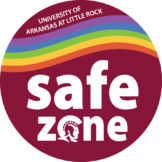An estimated 1.1 million people in the United States had HIV at the end of 2016, the most recent year for which this information is available. Of those people, about 14%, or 1 in 7, did not know they had HIV.
HIV stands for human immunodeficiency virus. It is the virus that can lead to acquired immunodeficiency syndrome or AIDS if not treated. Unlike some other viruses, the human body can’t get rid of HIV completely, even with treatment. So once you get HIV, you have it for life.
HIV attacks the body’s immune system, specifically the CD4 cells (T cells), which help the immune system fight off infections. Untreated, HIV reduces the number of CD4 cells (T cells) in the body, making the person more likely to get other infections or infection-related cancers. Over time, HIV can destroy so many of these cells that the body can’t fight off infections and disease. These opportunistic infections or cancers take advantage of a very weak immune system and signal that the person has AIDS, the last stage of HIV infection.
No effective cure currently exists, but with proper medical care, HIV can be controlled. The medicine used to treat HIV is called antiretroviral therapy or ART. If people with HIV take ART as prescribed, their viral load (amount of HIV in their blood) can become undetectable. If it stays undetectable, they can live long, healthy lives and have effectively no risk of transmitting HIV to an HIV-negative partner through sex.
Read more about the stages of HIV.
The only way to know for sure whether you have HIV is to get tested. Knowing your HIV status helps you make healthy decisions to prevent getting or transmitting HIV. Learn more about confidential HIV testing at UA Little Rock.
Some people have flu-like symptoms within 2 to 4 weeks after infection (called acute HIV infection). These symptoms may last for a few days or several weeks. Possible symptoms include
- Fever,
- Chills,
- Rash,
- Night sweats,
- Muscle aches,
- Sore throat,
- Fatigue,
- Swollen lymph nodes, and
- Mouth ulcers.
But some people may not feel sick during acute HIV infection. These symptoms don’t mean you have HIV. Other illnesses can cause these same symptoms. See a health care provider if you have these symptoms and think you may have been exposed to HIV.

